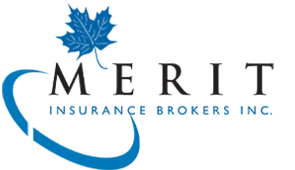Contractors and Bonding Insurance
Merit’s Contractors and Bonding Insurance provides specialized coverage for contractors in Ontario.
The construction industry is booming, with significant liability and property damage risks. Contractor insurance is essential to protect Contractors, General Contractors, and Subcontractors in Ontario.
Contractors prioritize safety on job sites, but the right insurance offers additional protection. It safeguards the business, ensuring that unforeseen incidents won’t affect its bottom line.
CONTRACTORS INSURANCE
Merit Insurance Brokers is a leading provider of contractor insurance in Ontario. We help contractors get the right coverage, so they can focus on what they do best, worry-free. Here are some essential insurance coverages to consider for contractors and construction risks:
What is Contractor Insurance?
Contractor’s liability insurance, or general contractor’s insurance, helps construction companies, individual contractors, and subcontractors protect themselves from potential liabilities and expenses related to construction risks.
Why is Contractor Insurance Important?
The construction industry is high-risk, with workers regularly handling heavy-duty equipment and hazardous materials. Contractor insurance provides protection in case of accidents or unforeseen events, benefiting both project owners and contractors/subcontractors. Additionally, contractor insurance may be required by clients, who often request proof of coverage before a project begins.
What Does the Contractor Insurance Cover?
The primary goal of contractor insurance is to protect companies, contractors, and subcontractors from liabilities, third-party property damage, equipment theft, bodily injuries, and legal or medical costs in case of a lawsuit. Below are some coverages available:
- Business Contents
- Machinery and Equipment
- Tools
- Installation Coverage
- Extra Expense
- Flex Protect
- Crime (including Third Party Bond)
- Commercial General Liability
- CCDC Liability Compliant
- Contingent Wrap-Up Liability Coverage, including Difference in Conditions and Difference in Deductibles
- Contractor’s Errors and Omissions Liability Coverage
We have partnered with a market leader, Foxquilt Commercial Insurance, to protect businesses like yours. Our clients can benefit from Foxquilt’s quote and bind platform to easily access affordable eCommerce, Contractor and Personal Services products.
COMMERCIAL SURETY (BONDS)
Commercial surety bonds, like contract bonds, ensure that business owners meet security requirements set by courts, government bodies, financial institutions, and private corporations, protecting against financial risk. These bonds guarantee compliance with legal obligations and safeguard consumers from fraud, misrepresentation, and financial loss.
For example, a supply and installation company may use a commercial surety bond to guarantee equipment installation and ongoing servicing.
Commonly used commercial surety products include:
- License and permit bonds
- Customs and excise bonds
- Lost document bonds
Merit Insurance also offers fiduciary bonds for personal needs through approved providers. Our Merit brokers work with experienced Surety specialists to deliver exceptional service and unique solutions to meet clients’ commercial surety commitments.
Click here to get a Contractors and Bonding Insurance quote or contact Merit Insurance Brokers to learn more.
FREQUENTLY ASKED QUESTIONS
What types of insurance do I need to know about for my business?
As a business owner in Ontario, you should consider obtaining insurance coverage for general liability, property damage, business interruption, and professional liability (if applicable). Depending on your industry and specific risks, you may also need to consider additional policies such as product liability, cyber liability, and directors and officers (D&O) liability insurance. It’s important to consult with an experienced insurance agent or broker to determine the appropriate coverage for your business needs.
What is co-insurance?
The co-insurance clause is a common and often misunderstood part of property insurance policies.
Co-Insurance is an agreement between YOU and the Insurance Company, whereby you agree to maintain coverage up to a stated percentage of the value of the property you wish to insure (usually 80%, 90% or 100%).
In the event of a loss, the amount of payout from the insurance company is calculated on a formula.
How to calculate co-insurance?
The simple formula for calculating the coinsurance penalty is: amount of insurance in place / Amount of insurance that should have been in place x the loss, less any deductible is the amount actually paid.
What is a certificate of insurance?
A certificate of insurance is a document that verifies the existence of an insurance policy. In Ontario, it is typically issued by an insurance company and provided to a third party as proof of insurance coverage. The certificate will include information about the insurance policy, such as the type of coverage, policy limits, and the effective dates of coverage.
What is Cyber Insurance?
Cyber insurance is a type of insurance coverage that provides protection against losses related to cyberattacks and data breaches. This insurance policy can cover costs related to notifying affected individuals, legal expenses, and costs associated with investigating and repairing damages caused by cyber incidents. Cyber insurance can also provide resources to help businesses prevent future attacks and mitigate risks. It is an important consideration for any business that handles sensitive customer or employee data or relies on technology for daily operations.
What is Identity Theft Coverage?
Identity theft coverage is a type of insurance policy that can help protect individuals from the financial and legal consequences of identity theft. It typically provides assistance with the costs associated with restoring credit and resolving fraudulent accounts, as well as reimbursement for stolen funds or expenses incurred during the recovery process.
What is a deductible?
This is the part that you pay in the event of a claim. The insurance company covers the rest, up to the $ amount of loss, or your policy’s limits whichever is less. The higher the deductible, the lower your insurance premium and vice versa.
If I cancel my policy, I won’t owe the last month’s insurance right?
If the policy is canceled by you, the calculation of the cancellation is Short Rate. The Short Rate Penalty is based on the days the policy has been in force. Depending on your payment schedule and withdrawal date, there may be an outstanding premium, which is collected after cancellation is processed. If you need to cancel it is always best to cancel the policy on the anniversary date to avoid cancellation fees.
When it comes to business insurance, what is the difference between commercial general liability and professional liability coverage?
The main difference between professional liability and commercial general liability (CGL) insurance is the type of risks that they cover. CGL covers the cost of legal and medical expenses associated with claims declaring third-party property damage or bodily injury because of your business routine.
Professional liability insurance (often referred to as errors and omissions), provides coverage for claims resulting from negligence or failure to deliver a professional service as promised, which could have led to a financial loss on your client’s behalf.















